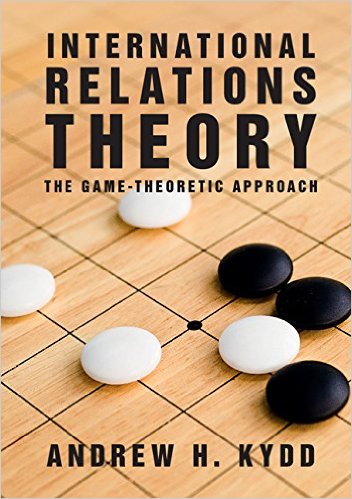
Book review: International Relations Theory. The Game-Theoretic Approach. By Andrew H. Kydd. Cambridge University Press, 2014. 239 pages, $31.20 (kindle, amazon.com)
How does the strategic environment of threats and opportunities that confront states lead to different kinds of behavior? How can game theory help us think through the strategic options countries face, e.g. during a nuclear crisis, negotiations that may lead to war, or when trying to guess where the enemy will invade? In attempt to make the subject accessible to a broader readership within the international relations community, Andrew Kydd, a political scientist at the University of Wisconsin-Madison, has written a clear and engaging introduction to game theory, the mathematical study of strategic interaction. International Relations Theory: The Game-Theoretic Approach provides a relatively easy entry point for those with little previous experience in this subset of rational choice theory that deals with strategic interaction — i.e., situations in which what each player wants depends in part on what it thinks others will do.
Kydd’s book most likely works best in the context of a course during which students can jointly engage in the exercises the author proposes after each chapter — for example, to learn about normal form games such as The Prisoner’s Dilemma, the Assurance Game, the Coordination Game (which features multiple equilibria but with differing interpretation of which is best), Chicken and Matching Pennies, and dynamic games or games that take place over time.
Contrary to dogmatists, Kydd readily acknowledges some of the shortcomings of the game theoretic approach. While it will beat many other approaches in terms of logical rigor, even more complex game theoretic models hardly include all the real-world complexities that may influence strategic choices. Regarding states as unitary actors at times fails to take important details into consideration, he acknowledges. The final chapter, in which the author discusses the impact of domestic politics on international affairs, is perhaps the most interesting, and he admits that while adding domestic actors makes modeling the domestic-international interaction more difficult, it becomes increasingly clear that international relations cannot be understood without including domestic dynamics.
Some of the results of the models he presents (e.g. “Rising powers can reduce the likelihood of preventive war by making concessions in the present to declining powers. These concessions will be reversed in the future, but serve to tip the balance against preventive war.”) may be difficult to apply to US-China relations – for example, how do we measure rise and decline in the real world? After all, there is still no consensus among IR scholars whether the United States is in decline to begin with.
And yet, even those who do not use the game-theoretic approach will benefit from having at least a general notion of it to have a basic dialogue for those who do — for that purpose in particular, Kydd’s book is a good choice. Considering how much the lack of accurate knowledge is a factor in international affairs, chapter 6 — which nicely shows how uncertainty affects strategic choice and increases the risk of break downs during bargaining — proves useful to the general reader, particularly when the author seeks ways to explain the outbreak of World War I using a game-theoretic approach. Kydd writes that private information can be seen as a primary rationalist explanation of war, and elaborates in chapter 9 how communication can be used to prevent conflict. Chapter 10, on multilateral cooperation, will be highly useful for students working on climate change, a classic public goods like situation were cooperation tends to be suboptimal.
International Relations Theory: The Game-Theoretic Approach is thus an excellent point of entry into this particular field.
Read also:
Big Data: What does it mean for International Relations?
Book review: “The End of Power” by Moisés Naím
Book review: “China Goes Global: The Partial Power” by David Shambaugh








